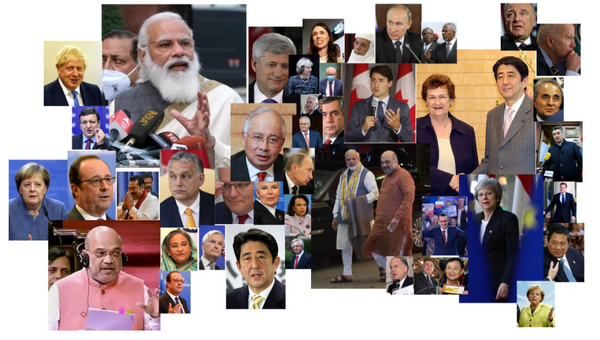Notifications
ALL BUSINESS
COMIDA
DIRECTORIES
ENTERTAINMENT
FINER THINGS
HEALTH
MARKETPLACE
MEMBER's ONLY
MONEY MATTER$
MOTIVATIONAL
NEWS & WEATHER
TECHNOLOGIA
TV NETWORKS
VIDEOS
VOTE USA 2026/2028
INVESTOR RELATIONS
COMING 2026 / 2027
ALL BUSINESS
COMIDA
DIRECTORIES
ENTERTAINMENT
FINER THINGS
HEALTH
MARKETPLACE
MEMBER's ONLY
MONEY MATTER$
MOTIVATIONAL
NEWS & WEATHER
TECHNOLOGIA
TV NETWORKS
VIDEOS
VOTE USA 2026/2028
INVESTOR RELATIONS
COMING 2026 / 2027
About Me
 Roscoe Kinsey
Roscoe Kinsey Global politics in the 21st century is marked by a complex and ever-changing landscape. As the world becomes increasingly interconnected, the challenges and opportunities facing nations and political actors are evolving at a rapid pace.
 Roscoe Kinsey -
August 10, 2023 -
Other -
global politics
political fantasy sports
Parliament League
fantasy politics
fantasy politics game
political fantasy
political games
Play Elect League
Global Politics Fantasy League
Regional Politics Fantasy League
best political blogs
opinion blogs
political fantasy league
-
1.5K views -
0 Comments -
0 Likes -
0 Reviews
Roscoe Kinsey -
August 10, 2023 -
Other -
global politics
political fantasy sports
Parliament League
fantasy politics
fantasy politics game
political fantasy
political games
Play Elect League
Global Politics Fantasy League
Regional Politics Fantasy League
best political blogs
opinion blogs
political fantasy league
-
1.5K views -
0 Comments -
0 Likes -
0 Reviews

Global politics in the 21st century is marked by a complex and ever-changing landscape. As the world becomes increasingly interconnected, the challenges and opportunities facing nations and political actors are evolving at a rapid pace. In this article, we will explore some of the key challenges and opportunities that global politics presents in the 21st century.
One of the most pressing challenges facing global politics today is climate change. The scientific consensus is clear: human activities, particularly the burning of fossil fuels, are contributing to the warming of the planet. This has far-reaching implications for political actors at all levels, from local governments to international organizations.
Economic inequality is another major challenge facing global politics. The gap between the rich and the poor is widening, both within countries and between countries. This has implications for social stability, political legitimacy, and global security.
The rapid pace of technological advancements presents both challenges and opportunities for global politics. On one hand, technology has the potential to improve the lives of people around the world, from increasing access to education and healthcare to enhancing communication and connectivity.
The rise of populism is another significant challenge facing global politics in the 21st century. Populist movements, characterized by their opposition to traditional elites and institutions, have gained traction in many countries around the world.
Finally, global politics in the 21st century requires greater cooperation and governance mechanisms to tackle the complex challenges facing the world. Issues like climate change, economic inequality, and technological advancements require global solutions that transcend national boundaries.
The challenges and opportunities of global politics in the 21st century are immense. Climate change, economic inequality, technological advancements, the rise of populism, and the need for greater global cooperation and governance are just some of the key issues that require attention and action.
